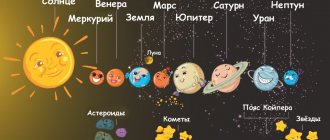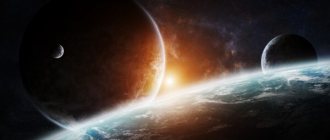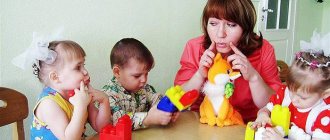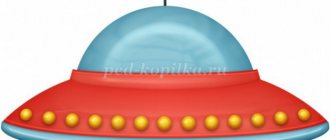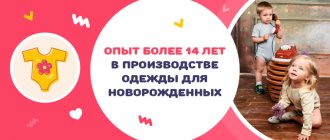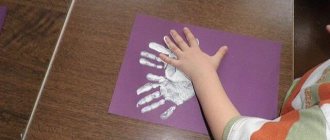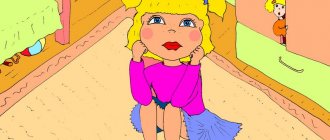Such a distant and endlessly attractive space! Not every adult fully understands the fullness of this concept, let alone children. Let's try to tell children about space as clearly and interestingly as possible. If we succeed, perhaps the child will not just become interested in astronomy for a while, but will truly love it and be able to make some grandiose scientific discovery in the future. When telling your child about space, imagine how, as an adult, he will remember your story with a smile on his face. What should you tell your child about space and, most importantly, how?
Space has attracted and continues to attract the views and thoughts of man of all times and peoples. After all, there are so many secrets, so many inexplicable and amazing discoveries and opportunities. Yes, and we - the humanity of planet Earth - although small, are still a particle of the cosmos - this boundless and alluring space.
Just the main thing
What can you tell us about space? First of all, learn to observe! If we look at the sky at different times of the day, we will see the sun, moon and stars. What is it? All these are space objects. The vast universe consists of billions of cosmic objects. Our planet Earth is also a space object; it is part of the solar system.
The system has this name because its center is the Sun, around which 8 planets move: Mercury, Venus, Earth, Mars, Jupiter, Saturn, Neptune and Uranus. The path they take around the Sun is called an orbit.
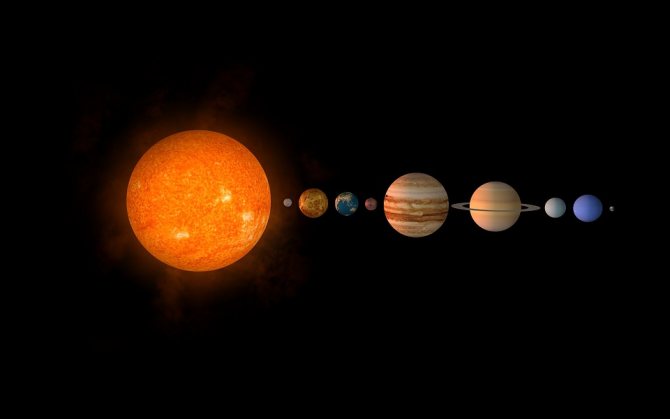
Preview:
Municipal budgetary preschool educational institution "Child Development Center - Kindergarten No. 7"
Reading books about the planets of the solar system and space
Completed by an additional teacher
education Golovko E. V.
Counting books about space are a convenient technique not only for choosing a driver in the game, but also for remembering the order of the planets. Thus, rhyme gives both the form of the work and fills it with content. That is, the teaching, developmental and educational tasks of working with children are realized.
Reading books about planets
One - Mercury. Two - Venus. Three - Earth. Four - Mars. Five - Jupiter. Six - Saturn. And also Uranus, Neptune. And let's also take Pluto into account. Our Sun is a champion!
The Sun is shining, and there are nine planets around. I'll list the planets for you in order: One! Mercury Two! Venus, Three! Earth, Fourth - Mars. Five! Jupiter, Six! Saturn, Seven! Uranus, Eighth - Neptune. Number nine is called Pluto. The one who is superfluous, get out!
“Astronomical counting rhyme” (A. Usachev). An astrologer lived on the Moon, He counted the planets: Mercury - one, Venus - two, Three - Earth, Four - Mars, Five - Jupiter, Six - Saturn, Seven - Uranus, Eighth - Neptune, Nine - Pluto the farthest... Those who don't see will get out!
In order, all the planets can be named by any of us: One - Mercury, Two - Venus, Three - Earth, Four - Mars. Five is Jupiter, Six is Saturn, Seven is Uranus, followed by Neptune. He is the eighth in a row. And behind it, then, is the ninth planet called Pluto. If you don’t remember, get out!
Counting books about rockets and astronauts
To fly us to the planet, we made a rocket. One, two, three - You will fly today!
We should launch rockets. One, two, three, four, five - We should launch rockets. Those who were late for departure did not hit the rocket.
“Snowy space” (N. Samonii). Today we had to sculpt an astronaut all day, And the rocket will be there tomorrow, It’s night, it’s time for everyone to sleep. There will be enough snow, that's for sure - A large apparatus will come out, We know this ahead of schedule, After all, there was a generous snowfall. In the morning we will fashion a rocket, If there is snow. And without sunlight, it’s time for us to fly in our dreams! Finally, let's count: One, two, three, four... Oh! We urgently end the games - Dad gave the order “All clear!”
We will be astronauts, let people be proud of us. We will fly on silver rockets in the clear sky. You do not believe? Come out! Look at the rockets!
Yesterday I flew in a rocket, I was on a distant planet. There I dined in the blue, And in the evening I was in Moscow. Friends, I was the first to emerge from that rocket.
Yesterday I boarded a rocket and flew around the world on it. I was in the desert, I was in the savannah, And in Berlin, And in Havana, And in Warsaw, And in Paris, And I got to know Moscow better, And in Sofia an hour later I was in time for football. That's the whole story, friends. So I went out first!
The stars shine in the dark sky. An astronaut flies in a rocket. Day flies and night flies And looks down at the ground. From above he sees fields, mountains, rivers and seas. He sees the entire globe, The globe is our home.
Counting books about the Sun and stars
Is it really so easy to count the stars in the sky? We counted for two weeks - We barely counted. But we were unlucky - we didn’t remember the number.
One, two, three, four, Five, six, seven, Eight, nine, ten. The white moon is coming out! Whoever reaches the month will go to hide!
The Sun rides and rides in a golden carriage, The Sun sees and sees everything in the world from above: And a puppy, and a rooster, And a goat with horns, And how Petya waves his fists in the yard.
The sun rose above the mountain. An apple fell from the sky, Rolling across the azure meadows straight towards us! It rolled, it rolled, it fell into the river from the bridge, whoever saw it, don’t sleep, quickly catch it! Whoever caught it, well done, After all, the counting is over!
One, two, three, four, five, I need to sleep in the sun. Six, seven, eight, nine, ten, the sun is sleeping, there is a month in the sky. Run away in all directions, Tomorrow is a new game.
One, two, three, look at the stars! There are millions of them in the sky, One, two, three! We will count the stars, One, two, three, four, five... Count, don’t be lazy, Make sure you don’t make a mistake!
One, two, three, four, five, I need to sleep in the sun. Six, seven, eight, nine, ten, the sun is sleeping, there is a month in the sky. Run away in all directions, Tomorrow is a new game!
One, two, three, four, five, Six, seven, eight, nine, ten - The red moon floats out, And behind the month is the Moon, The boy is the girl's servant. “You, servant, give me the carriage, and I will sit down and go. I'll go to the masquerade. Choose your outfit: Blue, red, light blue - I’ll choose any one for myself.
The full moon looks out from the sky window, plays hide and seek with the clouds and counts by tens. Ten, twenty, thirty, forty! And dawn is not coming soon. Fifty and sixty! There are stars hanging in the sky. Seventy! We were lucky - a UFO arrived. Eighty! Hedgehogs and squirrels came out of the plate. Ninety! Vanya is with them! Where are the aliens? It was not without reason that we counted from tens to one hundred! To make everything clear, we will count backwards. One hundred! We asked the squirrel: “Is there anyone else in the plate?” It's not easy to figure it out here. Let's say in unison: “Ninety!” If anyone comes out of the darkness, “Eighty!”, we will say. Seventy and sixty! Two piglets came out. “Fifty!” They said: “Together with Vanya we flew to a distant planet. There are sweets growing everywhere!” Forty, thirty, twenty, ten! We urgently need to weigh Vanya. Maybe Vanin has taken the form of an Evil Alien? After all, we know about them that they are a hundred times heavier! Hedgehogs and squirrels weighed Vanya together with a plate. It turned out that he weighs as much as one hundred and twelve tons!
One, two, three, four, five, Six, seven, eight, nine, ten - The red moon floats out, And behind the month is the Moon, The boy is the girl's servant. “You, servant, give me the carriage, and I will sit down and go. I'll go to Leningrad to buy myself an outfit.
One two three four five,
Six, seven, eight, nine, ten, A clear month floated out, And behind the month the Moon, The boy is the girl's servant. “You, servant, give me the broom, I’ll sweep the carriage”
Dear guests! For Cosmonautics Day, poems about space for you and your children. Have an interesting space journey!
| The attachment | Size |
| stihi_o_kosmose.docx | 21.94 KB |
Planet Earth
The only planet on which there is life at the moment is our Earth. The main difference between the Earth and other planets is the presence of water - the source of life and the atmosphere, thanks to which the Earth has the air that we breathe.
We learned a lot of fascinating things about planet Earth thanks to the adventures of Chevostik in his time. There are also visual experiences and experiments. For more details, read the article “Planet Earth. Travels with Chevostik."
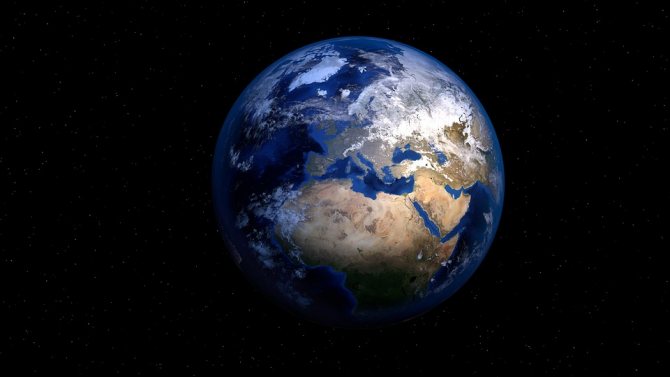
Other planets of the solar system
The rest of the planets are no less interesting and alluring. The largest planet is the mighty Jupiter. And Saturn is famous for its giant rings, visible to us from Earth. Mars is the first planet to attract the attention of man back in Ancient Egypt. Because of its fiery red color, ancient people associated Mars with the god of war. The planet Venus is the only one that has a “female” name. She received it thanks to her brightness. In ancient times it was considered the brightest planet.
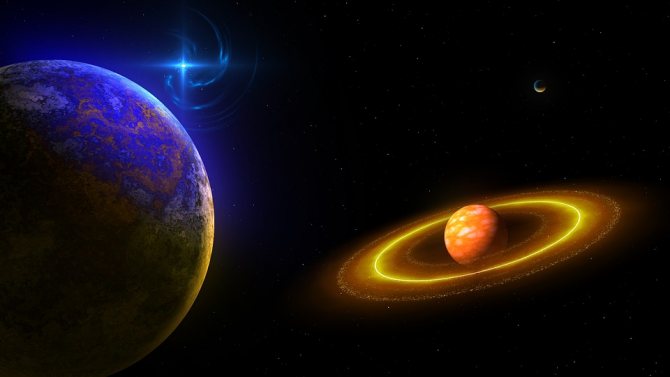
While studying poems about Space, my son and I fell in love with this little counting rhyme that helps us remember the names and order of the planets:
An astrologer lived on the Moon. He kept track of the planets: MERCURY - one, VENUS - two, three - EARTH, Four - MARS, Five - JUPITER, Six - SATURN, Seven - URANUS, Eight - NEPTUNE, Nine - the farthest PLUTO, Who If he doesn’t see it, get out!
(Ya. Akim)
Is Pluto not a planet?
It is also worth noting that until 2006, the world community identified 9 planets in the solar system. However, due to Pluto’s failure to meet one of the definitions of planets, it was recognized as a dwarf planet and “excluded” from the list of planets of the solar system.
Points that determine that a cosmic body is a planet:
- The object must orbit the Sun - And Pluto passes through.
- It must be massive enough to ensure a spherical shape with its gravitational force - And here everything seems to be in order with Pluto.
- It must not be a satellite of another object. Pluto itself has 5 moons.
- It should be able to clear the space around its orbit from other objects - Aha! This is the rule that Pluto breaks, this is the main reason why Pluto is not a planet. (Source)
How to easily remember the order of planets in the sky
In order, all the planets can be named by any of us: One - Mercury, Two - Venus, Three - Earth, Four - Mars. Five is Jupiter, Six is Saturn, Seven is Uranus, followed by Neptune.
Think back to how you memorized the colors of the rainbow as a child. The same principle can be applied to the names of the planets. Construct a phrase in which each word begins with the same letter as a planet in the solar system in the order of its location from the Sun. For example:
We are Mercury We will meet Venus Tomorrow My Earth Mars Young Jupiter Satellite Saturn Flying away Uranus Not for long Pluto
This is just an example, in fact, you can come up with anything, as long as it is close to your child’s spirit and he easily remembers the entire sentence. Now that we have figured out exactly how to present any information to children, we can move on to the direct knowledge that you will teach your young astronomers.

Finally, an interesting and simple story for children about what the solar system is. The solar system is all the cosmic bodies that revolve around the Sun according to their clearly defined trajectories. These include 8 planets and their satellites (their composition is constantly changing, as some objects are discovered, others lose their status), many comets, asteroids and meteorites. History of the emergence of planets There is no definite opinion on this matter, there are only theories and guesses. According to the most common opinion, about 5 billion years ago, one of the clouds of the Galaxy began to shrink towards the center and formed our Sun. The formed body had a tremendous gravitational force, and all the particles of gas and dust around began to connect and stick together into balls (these are the current planets). The Sun as a star and the center of the Solar System The planets in their orbits revolve around a huge star called the Sun. The planets themselves do not emit any heat, and if it were not for the light of the Sun that they reflect, then life on Earth would never have arisen. There is a certain classification of stars, according to which the Sun is a yellow dwarf, approximately 5 billion years old. Satellites of planets The solar system does not consist only of planets; it also includes natural satellites, including the well-known Moon. In addition to Venus and Mercury, each planet has a certain number of satellites, today there are more than 63. New celestial bodies are constantly being discovered thanks to photographs taken by automatic spacecraft. They are capable of detecting even the smallest satellite with a diameter of only 10 km (Leda, Jupiter). Characteristics of each planet of the solar system 1. Mercury. This planet is closest to the Sun; in the entire system it is considered the smallest. Mercury has a hard surface, like all four inner planets (those closest to the center). It has the highest rotation speed. During the day, the planet practically burns under the sun's rays (+350˚), and freezes at night (-170˚). 2. Venus. This planet is more similar to Earth than others in its size and brightness. There are always a lot of clouds around it, which makes observation difficult. The entire surface of Venus is a hot rocky desert. 3. Earth is the only planet on which there is water, and therefore life. It has an ideal location in relation to the Sun: close enough to receive light and heat in the right quantities, and far enough not to get burned by the rays. The Earth has one satellite - the Moon. 4. Mars. Some scientists have suggested that life also exists on this planet because it has a number of similarities with Earth. But numerous studies have found no signs of life there. At the moment, two natural satellites of Mars are known: Phobos and Deimos. 5. Jupiter is the largest planet in the solar system, 10 times larger than Earth in diameter and 300 times larger in mass. Jupiter consists of hydrogen, helium and other gases and has 16 satellites. 6. Saturn is the most interesting planet for children, as it has rings that are formed from dust, stones and ice. There are three main rings around Saturn, each about 30 meters thick. 7. Uranium. This planet also has rings, but they are much more difficult to see and only appear at certain times. The main feature of Uranus is its manner of rotation, performed in the “lying on its side” mode. 8. Neptune. Astronomy today calls this planet the last in the solar system. Neptune was discovered only in 1989, since it is located very far from the Sun. Its surface looks blue from space, which cannot but amaze us. Until 2006, there were 9 planets, including Pluto. But according to the latest scientific data, this space object is no longer called a planet. It’s a pity... Although, it has become easier for children to remember.
Moon
The moon that shines in the sky at night is a satellite of our planet. By cosmic standards, it is very close to us, just 3 days away on a rocket. The Moon rotates around the Earth counterclockwise.
We see it only at night, since during the day the Sun eclipses it with its light, and it is always of a different shape, or rather visible to us. Each form has its own phase: new moon, crescent of the waxing moon, first quarter of the waxing moon, waxing moon, full moon and then decreasing: waning moon, quarter of the waning moon, crescent of the waning moon, new moon again.

What is the solar system
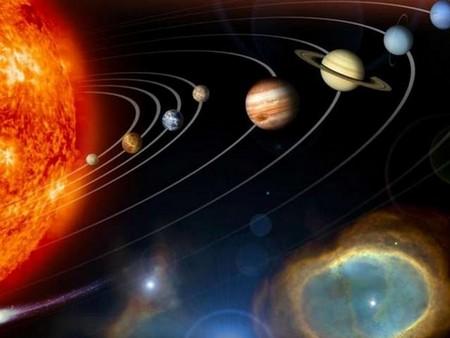
The solar system is all the cosmic bodies that revolve around the Sun according to their clearly defined trajectories. These include 8 planets and their satellites (their composition is constantly changing, as some objects are discovered, others lose their status), many comets, asteroids and meteorites.
History of the origin of planets
There is no definite opinion on this matter, there are only theories and guesses. According to the most common opinion, about 5 billion years ago, one of the clouds of the Galaxy began to shrink towards the center and formed our Sun. The formed body had a tremendous gravitational force, and all the particles of gas and dust around began to connect and stick together into balls (these are the current planets).
The sun as a star and the center of the solar system
The planets revolve in their orbits around a huge star called the Sun. The planets themselves do not emit any heat, and if it were not for the light of the Sun that they reflect, then life on Earth would never have arisen. There is a certain classification of stars, according to which the Sun is a yellow dwarf, approximately 5 billion years old.
Satellites of the planets
The solar system does not consist only of planets; it also includes natural satellites, including the well-known Moon. In addition to Venus and Mercury, each planet has a certain number of satellites, today there are more than 63. New celestial bodies are constantly being discovered thanks to photographs taken by automatic spacecraft. They are capable of detecting even the smallest satellite with a diameter of only 10 km (Leda, Jupiter).
Stars
Stars are hot balls of gas of different sizes, consisting of hydrogen molecules. They only seem so small to us, because they are at a very far distance from us.
Clusters of stars form constellations. They were given names by our ancestors, who mentally connected the stars with each other and saw certain figures in them. Instruments for studying – telescopes – help us see them closer.
You can learn about what stars and constellations are, what they are like, what they have in common with humans and what their character is by watching this short video:
Sun
The sun is also a star, only very hot and very large. Around it, as we found out, other planets, including the Earth, are circling. We feel the warmth of the sun and see it so well because it is very close to the Earth.
Thanks to the Sun, seasons change on planet Earth. We know what hot and cold are
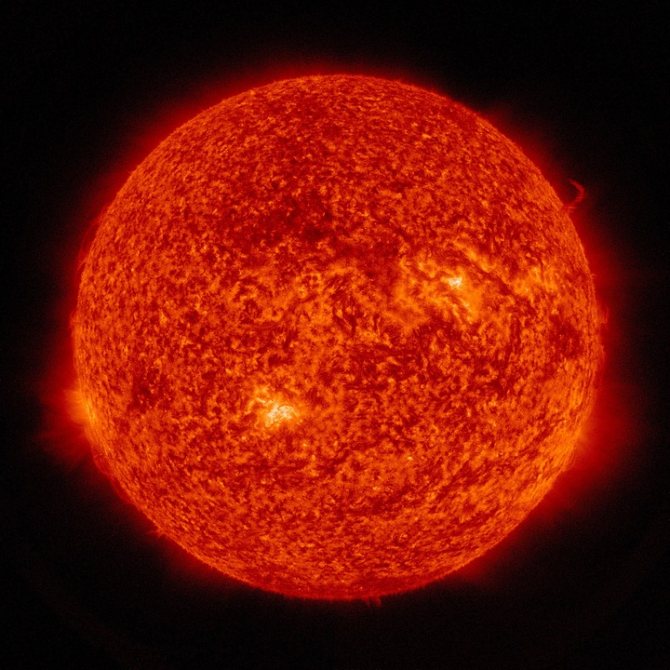
Space is limitless. Our entire endless solar system is just a particle in the Universe. In it and throughout space there are also such space objects as:
Preview:
16 poems for children about the solar system, planets and satellites.
Dear guests! For Cosmonautics Day, poems about space for you and your children. Have an interesting space journey!
An astrologer lived on the Moon. He kept track of the planets: MERCURY - one, VENUS - two, three - EARTH, Four - MARS, Five - JUPITER, Six - SATURN, Seven - URANUS, Eight - NEPTUNE, Nine - the farthest PLUTO, Who If he doesn’t see it, get out! (A. Usachev)
* * * * * * * * * * In order, all the planets can be named by any of us: One - Mercury, Two - Venus, Three - Earth, Four - Mars. Five is Jupiter, Six is Saturn, Seven is Uranus, followed by Neptune. He is the eighth in a row. And behind it, then, is the ninth planet called Pluto. (A. Hight)
* * * * * * * * * * There are stars in the sky, but they are very strange. They walk across the sky among other Other, real, twinkling stars. And are they stars? — We are concerned about the question. A wandering star wandering across the sky is not a star at all, but a planet! Planets, unlike stars, are cold - They do not shine, they only reflect light, alas! And this light is bright, but of different shades. They are different in some way, I guess. Different surfaces - that's the secret. Let's study the planets and look for the answer. (T. Tveritinova)
Elusive, little Mercury is the first to meet solar storms. The second, behind him, flies Venus With a heavy, dense atmosphere. And the third, the carousel spins, Our earthly cradle. The fourth is Mars, the rusty planet, the red-orange one. And then they rush, like a swarm of bees, the asteroids in their orbit. The fifth is Jupiter, very large and clearly visible in the starry sky. Sixth - Saturn, in chic rings, Charming, under the rays of the sun. The seventh - Uranus, lay down like a couch potato, Because his long path is difficult. The eighth is Neptune, the fourth gas giant. He is a dandy in a beautiful blue shirt. Pluto, Charon, the ninth in the system, pass the time in the darkness as a duet.
The sun is a coin,” the stingy one grumbled. No, a frying pan! - the glutton cried. “No, it’s a loaf,” the baker said. Compass,” the sailor said with conviction. The sun is a star, the astronomer announced. “A kind heart,” the dreamer decided.
Where does the sun come from when we sleep in our cribs? Where does the sun float across the sky without looking back? Perhaps he has a house and there is a crib there, although the sun walks during the day and sleeps sweetly in it at night. Dreams come to him in that house. In his dreams, a river winds through the grass, which day still waits for spring, but the sun does not wake up, and the sun is lazy in the winter. Get up, how I get out of bed Icicles and drops will stir his peace (S. Karpeev)
* * * * * * * * * * Why, in the evening, the sun...
Why, in the evening, is the sun in a hurry to escape? Perhaps the sun has a desire to lie down? Probably the sun has a soft bed? It's probably too soft for the sun to sleep there! Maybe it’s just the sun that’s getting tired of shining for us And the sun really needs to recharge itself? Good night, sunshine! We can wait, and tomorrow with the first ray of light you will come to us again! (N. Rodivilina)
I am the solar wind!
I am the solar wind in interstellar space, changing the decoration at the speed of light.
Reaching the earth, With graceful movement, In great minds I give birth to fermentation. (L. Lukaneva)
Each planet has something of its own, which most clearly distinguishes it. You will certainly recognize Saturn by sight - It is surrounded by a large ring. It is not continuous, it is made up of different stripes. Here's how scientists solved the question: Once upon a time, water froze there, And Saturn's rings were made of snow and ice. (R. Aldonina)
There, in a necklace of pearl rings, Saturn flickers dimly, well done. He is named after the god of fate, but he does not hear people’s prayers. There is no atmosphere and it is always winter. There is no life there. It's pitch dark!
The Ring of Saturn is a mystery of nature - Silver light delights people. And these are pieces covered with ice, and of all kinds of sizes. And the width of the ring - oh my God! Our Earthly ball can roll!
Again failure, and again in flight! Our starship is flying towards cold worlds. (J. Paramonova)
Jupiter is the king of the planets! In a vest of clouds He’s in no hurry to spin - That’s just his nature! Twelve on Earth, But here only a year will pass! It is very heavy and floats slowly.
And on his chest there is a “red spot”. Where did it come from? Not decided yet! And if you and I suddenly found ourselves there, then you would weigh fifty kilograms there! But it’s simply impossible to step on your foot, because the planet is liquid, and you can drown in it!
Maybe we'll be lucky with Saturn? “Aw! Where are you people? We're flying forward! (J. Paramonova)
O Mars, once abandoned by Alien people! Forgotten, red, spongy, Covered with rusty dust!
You have grown old, frozen like ice, barely broken by an idle comet, you have become a space dummy, afraid to leave orbit, as if from a post!
You have been alone for so long and terribly, But you do not strive to caress the earthlings. And your thought, buried in the sand, will not burn a buried volcano.
O Mars! An empty block of stone, the limit of people's long-standing dreams! Life on Earth is familiar and beautiful, Only Mars knows the destiny of earthlings... (Yu. Demyanskaya)
There is one garden planet in this cold space. Only here the forests are noisy, calling migrating birds, only here Lily of the valley blooms in the green grass, And only here are dragonflies looking into the river in surprise... Take care of your planet - After all, there is no other like it! (R. Seph)
Very close to us, but still Venus looks down at us from an utter height. This planet is named after the goddess of beauty. Although it has a beautiful name and a pleasant appearance - the planetary spirit of Venus, due to the dense atmosphere, is scary, menacing and angry. There are winds, clouds and acid rain everywhere, Hurricanes and volcanoes, Through the valleys and mounds. The heat swirls in circles there... The days there are very long. And Venus is visible in the morning as a very bright star, hanging above the horizon and looking at you and me. (V. Berendeev)
Faithful companion, night decoration, Additional lighting. Of course, we must admit: The Earth would be boring without the Moon! (R. Aldonina)
The blue sky opened a yellow-orange eye. The sun, the luminary of day, looks at us affectionately.
The planet is spinning smoothly in the unsteady flickering of lights. Somewhere in space, a comet is following it.
Mercury is breaking out of orbit and wants to hug Venus. These magnetic storms can raise Mercury.
Distant stars are blinking, signaling something to the Earth. Black holes gape as an eternal mystery in the darkness.
Brothers in mind, where are you? Where are you waiting for us? Maybe in the constellation Virgo, Maybe in the constellation Pegasus? (N. Tsvetkova)
Some poems were written when Pluto was considered the 9th planet of the solar system. Today, Pluto is classified as a dwarf planet. There will still be many space discoveries that will surprise us and open up new horizons.
Galaxies
Galaxies are clusters of groups of stars united by vast distances. Our galaxy, which includes the entire solar system and beyond, is called the Milky Way. Galaxies can be of different shapes: spiral, elliptical, irregular. For example, the most famous galaxies, the Andromeda Nebula and the Milky Way, have a spiral shape.
Galaxies can collide with each other, pass through one another and merge into a new larger galaxy.
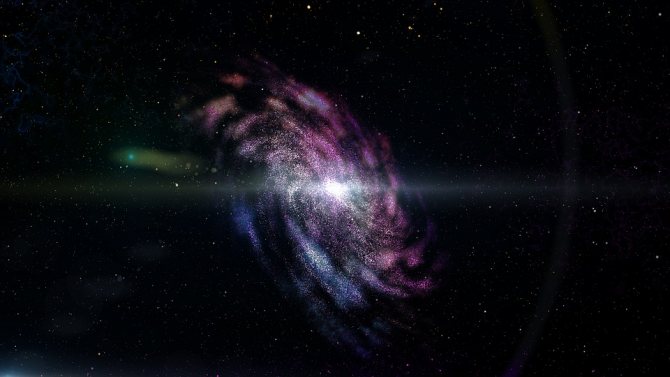
Asteroids
An asteroid is a rocky celestial body that has an irregular shape and varies in size: from a grain of sand to many kilometers of boulders. Due to the complete absence of gravity, asteroids cannot acquire a spherical shape, and therefore more closely resemble shapeless stones.
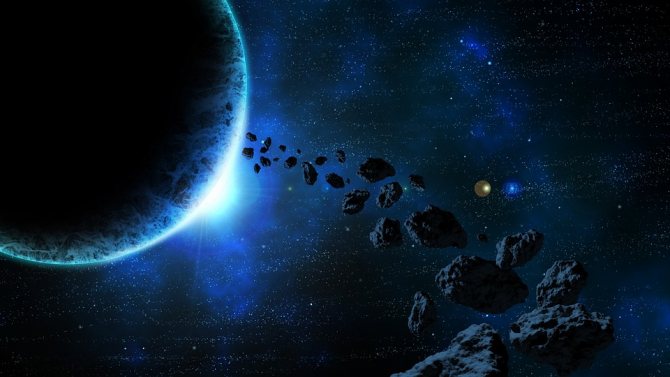
Asteroids are composed of iron, nickel, cobalt, oxygen, titanium, hydrogen and other elements. Asteroids can have craters and even satellites. And between Mars and Jupiter a whole asteroid belt formed. It’s very interesting about him and more, Smeshariki says:
Meteorites
Meteorites are pieces of celestial bodies, usually made of stone and iron, that fell to our Earth. They are of great value for science. After all, this is literally a piece of space. Scientists from all countries are trying to study these bodies as fully as possible.

Meteorites come in different sizes: from small stones to large boulders. The places where they fell can turn into craters.
Sometimes entire meteor showers occur - the fall of hundreds and thousands of meteorites in a limited sector of the sky. The largest meteorite ever discovered on earth, weighing 100,000 tons, is currently located in West Africa's Aidar Desert. Most often, only very small meteorites, whose weight ranges from several grams to kilograms, reach the surface of our planet, protected by a reliable shield of the atmosphere.
Quasars
A quasar is a cosmic object that releases a huge amount of energy. They are the brightest and most distant “residents” of the Universe from us.
Space is an endless space with millions of different galaxies, planets and stars that have not been fully studied by scientists. Scientists who study space are called astronomers. Previously, people did not really know anything about space, but gradually they studied it and made discoveries.
The famous astronomer and scientist Nicolaus Copernicus proved that our Earth and other planets move around the sun. Another scientist, Isaac Newton, determined why the planets move around the sun and do not fall. Step by step, people all over the world are becoming familiar with the secrets of space, which will last for many centuries.
Poems about space for children: 30 best
Website “Mom can do anything!” collected the best poems about space for children. Many people associate space with something huge and unknown. After reading this collection of poems, even adults will be able to return to childhood and remember childhood dreams. Who in childhood did not dream of becoming an astronaut and flying to the moon? With the help of these poems, children will be able to quickly remember the planetary model of the solar system, as well as learn a lot of new and interesting things.
***
In order, all the planets can be named by any of us: One - Mercury, Two - Venus, Three - Earth, Four - Mars. Five is Jupiter, Six is Saturn, Seven is Uranus, followed by Neptune. He is the eighth in a row. And behind it, then, is the ninth planet called Pluto.
Author: Hight A.
***
Celestial bears
You look into the sky from the window on a dark starry night: A big mother bear is stomping with her son...
Umka is a playful little bear, no stranger to pranks. But heaven has its own order: There is no need to violate it!
The star creature walks decorously behind its mother. Two bears in the sky - crumbs of the universe!!!
Author: Arvacheva L.
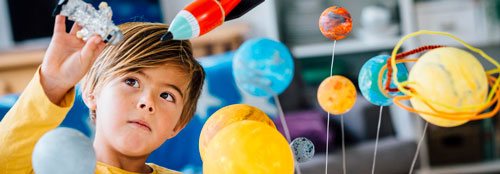
***
If the month is letter “C”, then it is an old month; If you hang a wand on it and get the letter “R”, That means he’s growing, That means soon, believe it or not, he’ll become fat.
***
Cosmic blue, Universal freedom. There is longing in the hearts of wanderers, anxiety is visible in the eyes. I roamed the open spaces for a long time, I forgot my home; But the anxiety will not go away, That I did not sail to the house. Let me soar in the universe, Let me burn like a lonely star: I illuminate the path for the lost, For those lost in nowhere...
***
I'll become an astronaut!
I will become an astronaut - the whole family knows this. I’ll fly into deep space and study the constellations!
It’s impossible to count all the planets... So I want to fly From star to star of Unprecedented beauty!
I’ll give mom and dad a new star of the dawn, And I could also find a cosmic flower.
How many secrets and discoveries await, Calling into the wonderful distance! There is only one home - Earth, She will wait for me.
Author: Melnikova-Kravchenko E.
***
On a space rocket
On a space rocket, Having severed the thread of doubt, I will fly to give candy to the Martians. Loudly flapping their ears, opening their red mouths, the Martians will say in unison: -You are a good-natured people! And they will give you an interplanetary spaceship as a gift!
Author: Alyonkina O.
***
What kind of relative of the Moon is there, Nephew or granddaughter Flashing between the clouds? - Yes, this is a satellite! - That's it! - He is the companion of each of us and, in general, of the entire Earth. The satellite was created by hand, and then delivered to these distances on a rocket.
Author: Yakovlev Yu.
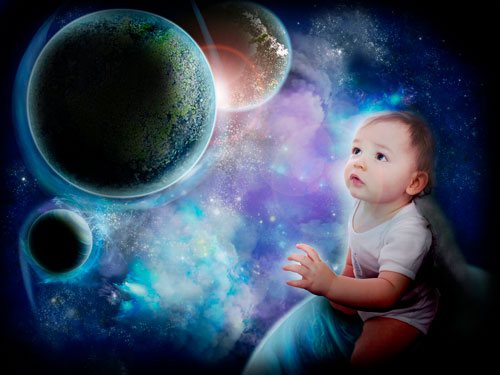
***
How tempting
How tempting it is to become an astronomer, intimately familiar with the Universe! It would not be bad at all: Observe the orbit of Saturn, Admire the constellation Lyra, Discover black holes And certainly compose a treatise - “Explore the depths of the Universe!”
Author: Sinitsyn Yu.
***
The Earth is a grain of sand in the Ocean Among countless worlds. And we are not only earthlings, If we hear the interplanetary call. And if you managed to spread your wings for flight and take off - There is no more perfect starship to overcome the earth’s magnet.
***
Music of the planets
Pluto, Neptune, Uranus, Saturn, Jupiter, Mars, Earth In their cosmic garden They played “tru-la-la”. Venus sat down at the clavier, Mercury took the oboe, and the starry world admired the beautiful playing. And the sun, the chief conductor, waving its rays of hands, painted the whole sky in major and suddenly flared up...
Author: Chernakov L.
***
Spreading its fiery tail, the Comet rushes between the stars. - Listen, constellations, Latest news, Wonderful news, Heavenly news!
Rushing at wild speeds, I was visiting the Sun. I saw the Earth in the distance and new satellites of the Earth. I was flying away from the Earth, ships were flying after me!
Author: Sapgir G.
***
Lunokhod
The lunar spacecraft landed on the moon. In the lunar spacecraft there is a lunar rover. Circuses, craters and holes are not scary for the Lunokhod. He leaves drawings on the surface of the moon. There is a lot of dust, there is no wind. Drawings can live for a thousand years!
Author: Berestov V.
***
It's so cool in space! Stars and planets In black weightlessness Float slowly! It's so cool in space! Sharp rockets at great speed, rushing here and there! It's so wonderful in space! It's so magical in space! Been to real space once! In real space! In the one that saw through, In the one that saw through a paper telescope!
***
An astrologer lived on the Moon. He kept track of the planets: MERCURY - one, VENUS - two, three - EARTH, Four - MARS, Five - JUPITER, Six - SATURN, Seven - URANUS, Eight - NEPTUNE, Nine - the farthest PLUTO, Who If he doesn’t see it, get out!
Author: Usachev A.
***
Yuri Gagarin
In a space rocket called “Vostok” He was the first on the planet to rise to the stars. The Spring Drops sing about this: Gagarin and April will be together forever!
Author: Stepanov V.
***
Stars
What are stars? If they ask you, answer boldly: Hot gas. And add that, moreover, there is always a Nuclear Reactor - Every star!
Author: Aldonina R.
***
Commander…
One, two, three, four, five - We'll play in space. We have a lot of missiles, but we just don’t have a Commander. In order for us to find him, Let's count to five: One, two, three, four, five - The one who is strong and smart will rule us: It will surely be him!
Author: Samoniy N.
***
There is one garden planet in this cold space. Only here the forests are noisy, calling migrating birds,
Only on it alone do lilies of the valley bloom in the green grass, and only here do dragonflies look into the river in surprise...
Take care of your planet - After all, there is no other like it!
Author: Akim Ya.
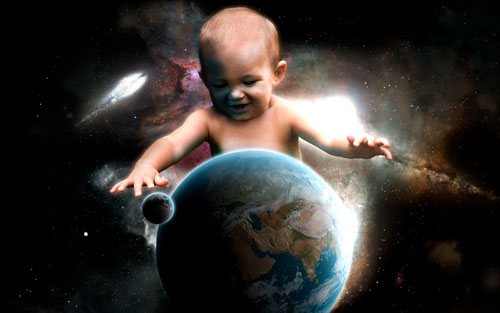
***
Return
The space flight ended, the ship descended in a given area, and now the pilot is walking across virgin lands, so that again he can take the earth in his palms... And in space he thought only about her, because of her he flew to such distances - and only about her All two hundred long days Wrote in my Space Journal!
Author: Orlov V.
***
I would like to fly to the moon, Plunge into an unsolved world. And like a beautiful dream, touch the brightest star. Fly to distant orbits, dimensions unknown to all of us, where the mysterious cosmos keeps many secrets of the vast universe. To visit other planets that science does not know about. And see unearthly creatures - That fly on strange plates. Ask how they live there, Whether there is autumn, winter or summer, For what purpose they always fly to us - To a planet forgotten by God... Everyone always dreams of something, And strives to achieve something. Only space, alas, will probably never want to open...
***
Here is the Big Dipper stirring the starry porridge with a large ladle in a large cauldron.
And nearby the Little Dipper glows dimly. Collects crumbs with a small ladle.
***
Rocket
There's a rainbow in the sky - a silk pattern! What a rainbow in the sky, like a colored carpet! And over the rainbow - a rocket soared to the skies. I will build the same rocket myself. And on the starry path I’ll fly on it, I’ll pick up a basket of stars for my Mom.
Author: Vieru G.
***
Constellations
All night the brilliant constellations do not slow down the round dance around one star, standing as if in the center of the sky. The earth's axis tilted towards it, we called it Polar. We will find out where the north is by her, and we are grateful to her for that.
Author: Aldonina R.
***
Star House
Ships launch into space - Following a daring dream! How great it is that we were able to escape into the vastness of the Universe!
It’s still nice to recognize ourselves as residents in the Star House, to step into the Worlds as into rooms - through the threshold at the cosmodrome.
Author: Asterov V.
***
Milky Way
The black velvet of the sky is embroidered with stars. A bright path runs across the sky. It spreads easily from edge to edge, as if someone spilled milk across the sky. But, of course, there is no milk or juice in the sky, We see our star system from the side. This is how we see the Galaxy. Our distant native light is space for astronautics for many thousands of years.
Author: Aldonina R.
***
A ship is flying
A steel ship flies in space around the Earth. And even though its windows are small, everything is visible in them as if on the palm of your hand: the expanse of the steppe, the surf, and maybe you and me too!
Author: Orlov V.
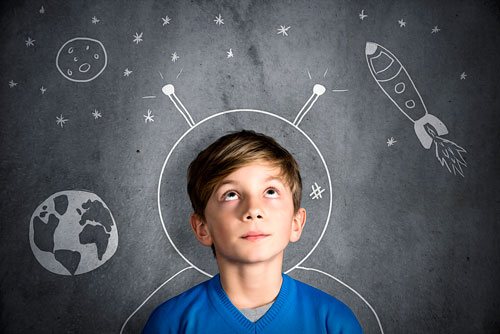
***
The stars are clear, the stars are high! What do you keep inside yourself, what do you hide? Stars, concealing deep thoughts, By what power do you captivate the soul? Frequent asterisks, tight asterisks! What is beautiful about you, what is powerful about you? What are you doing, heavenly stars, with the great power of burning knowledge? And why is it so, when you shine, beckon into the sky, into wide arms? Look tenderly, caress your heart, Heavenly stars, distant stars!
Author: Yesenin S.
***
Astronauts
We are in a silver rocket We will fly easily and quickly, Straight into the sky among the clouds, Where the sun's ray plays. For a week we'll fly to the moon, for a day or two, at least, we'll stay on Venus, and then at lunchtime we'll fly to Mars to play. If we land on Jupiter, expect us to go home in a year.
Author: Lisitsa A.
***
To Venus
Hiding your face behind a snow-white burqa, Following the Sun with a Beautiful Lady in your retinue, You again and again make your way along the circular orbit set by the Almighty...
You have been attracting attention for a long time, being the standard of Beauty! And the diamond patterns of the stars fade when you sparkle from the heavenly heights.
Author: Asterov V.
***
Here are the handles where our ladle is marked with a Benetnash Star. If you look next door, you will see Mizar and Alcor. But at the handle, turning to the star brings Aliot out. Well, then we will finally see the edge of the cup - Megrets. And we will pass the bottom just like that, Seeing Fekda and Merak. And above us, Nam Dubhe, a bright star, shines as always.
Author: Tkachuk L.
We talk about our universe with the help of experiments
With the help of simple but effective experiments, it will be easier for you to explain to your child what space is. Below we present for you a small selection that your child will definitely like and help him understand.
Why don't we always see the full moon?
We take an ordinary table lamp and a ball. Rotate the ball so that, depending on the lighting, you can also see the full ball and only part of it in the form of a crescent. It's so easy to explain that we only see the illuminated part of the moon in the sky.
How a rocket flies
A very visual experiment with a balloon that will show your child the basic principle of a rocket taking off. We take a balloon, inflate it by hand, squeeze it with our finger, and then suddenly release it. The ball flies up, and when the air in it runs out, it falls. This is how a rocket flies. The only difference is that instead of air it has fuel, so during takeoff you can see fire and clouds of smoke.
The rocket consists of several parts. After takeoff, when the fuel runs out, the first part is disconnected, the engine of the second part is started, after the fuel is used up, it is also disconnected, and only one small, lightweight third part with the cosmonaut cabin goes into orbit.
You can watch how to make a rocket using the origami technique in the video on our channel “Rainbow Workshop”:
How to tell your child about the planets of the solar system
In order for a child to learn the material well, it must be clearly demonstrated. Therefore, you will need pictures with planets, constellations, celestial bodies and stars. You can prepare a small computer presentation and place all the necessary images in it. A short video in the form of a cartoon would also be useful. The main thing is that your student does not get bored and easily perceives what you say. Don’t overwhelm him with complex phrases, tell him everything simply and naturally. Learning should take place in a playful way, then the child will not get bored and will remember all the basic information.
So let's decide
